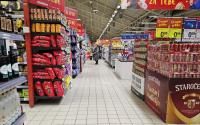23 December 2005Martin Hickman
Britain will discard more waste this Christmas than ever before, with an estimated three million tons of rubbish - a tenth of the annual total - accumulated over the next few days.
Barely a quarter of jettisoned goods, packaging and uneaten food is likely to be recycled, with the rest incinerated - spewing pollution into the atmosphere - or dumped in landfill sites where heavy metals can seep into the ground. The European Union has become so exasperated with the Government's failure to improve recycling that it has threatened legal action. The row centres on repeated delays to the introduction of the EU waste electrical and electronic equipment directive, which would cut dumping of televisions, computers and other electrical goods.
Britain performs poorly on recycling, with rates far lower than most of our European neighbours. Although recycling in England has doubled to almost 23 per cent in the past five years, countries such as Norway boast rates as high as 68 per cent.
The Government has begun a campaign to highlight the volume of waste generated by the gluttony of the Christmas season. According to Recycle Now, a government body, one billion Christmas cards, eight million Christmas trees and 750 million more bottles and jars than usual will be bought this Christmas.
Half of this material could be recycled or composted - yet most will end up going in the bin. The organisation believes that many people's desire to recycle wanes over the Christmas holiday.
Ben Bradshaw, the Local Government minister, said: "This Christmas, Britain will generate millions of tons of rubbish, most of which will languish in landfill sites. This needn't be so. Recycling is easier than it has ever been before so everyone can do their bit. The benefits of recycling to the environment are clear. More than eight million Christmas trees will be bought this year, most of which will be thrown away after Christmas, generating over 12,000 tons of extra rubbish. Not only is landfill the worst possible environmental option for waste, biodegradable waste - such as Christmas trees - also creates methane, a potent greenhouse gas, as it degrades."
Stephen Webb, of Waste Watch, said: "You only have to look at the number of black bags at the end of every street at the end of the holiday to see just how much waste is created at Christmas."
According to Recycle Now, every person in the UK throws away seven times their body weight in rubbish each year. However, for every five tons of electrical products thrown away by consumers it is estimated that another 15 tons are wasted in making the products.
This Christmas the popularity of new iPods, DVD players and plasma televisions is likely to result in the dumping of obsolete video recorders, stereo stack systems and CD Walkmans. The amount of discarded packaging is likely to rise sharply as a result of the surge in goods bought from the internet for delivery - up from 55 million parcels last year to an estimated 70 million - and higher food consumption. The failure to prevent the proliferation of packaging vexes many consumers and environmentalists.
This summer in his parting shot as president of the Royal Society - Britain's academy of science - Lord May of Oxford took the Government to task on its green record. He singled out packaging, complaining: "What we have is a totally gutless avoidance of introducing legislation that tries to reverse the trend to ever-more wastefully elaborate and environmentally damaging over-packaging of stuff."
Another widespread complaint is that built-in obsolence means that products are no longer made to last.
But the growing environmental imperative to reduce pollution from industry and waste disposal means that the rise of the throwaway society is likely to move up the political agenda in coming years.
The British Retail Consortium, which represents the big store chains, is already in talks with the Department for Environment, Food and Rural Affairs to discuss the development of more sustainable products.
Nigel Smith, the organisation's corporate social responsibility director, acknowledged that the vast scale of consumption and waste was becoming " a big issue".
Friends of the Earth argues there is a moral responsibility on Western governments and consumers to reduce waste and recycle. The organisation would like to see more prevention of waste in the first place but, failing that, more recycling and reuse. Michael Warhurst, senior resources campaigner for the group, said: "There is huge demand for resources around the world and for us to say, 'Why shouldn't we waste these resources?', is a pretty immoral thing to do. And these days recycling is much easier and many areas have kerbside collections."
WHAT WE WILL THROW OUT THIS CHRISTMAS
CARDS
One billion Christmas cards will be sent or hand-delivered - 17 for every man woman and child in the UK. But most will head into the bin after a few weeks. Some companies decided this year to stop sending Christmas cards or environmental reasons and instead sent e-mails. Cards can be recycled at big Tesco and WH Smith stores from 2 January. Last year, their scheme recycled more than 58 million cards.
COMPUTERS
Laptops, iPods and X-Boxes are among the most sought-after presents this year. Technological advances make consumers consider their IT and entertainment equipment to be out of date within a few years. Many do not throw out computers because they still work and instead stick them in the loft. But two million computers - weighing 53,000 tons and containing poisonous solders and plastics - are dumped each year, although they could be collected for the Third World. Just 26 per cent of computers and printers are recycled and refurbished.
ELECTRICAL GOODS
Small household appliances such as toasters, kettles and microwaves are not normally given as Christmas presents. But some families replace kitchen gadgets before the arrival of the family for the traditional meal. About 90 per cent of household electrical appliances are dumped in landfill sites. That amounts to 80,000 tons, just 8 per cent of the weight but 31 per cent of the total volume of electrical goods that are dumped.
FOOD
The Christmas feast and entertaining family and friends creates mountains of waste. Shops are said to have sold 16 million turkeys, 830 million sprouts and 12 million jars of pickles, ,yet 30 to 40 per cent of all festive food is wasted by farmers, shops or families. This year, Britons will consume the contents of an extra 750 million bottles and jars and 500 million drinks cans, most of which will be thrown out with the rubbish. Turkey foil wrap alone will create 3,000 tons of waste.
MOBILE PHONES
Getting the latest model is still a priority for many, as manufacturers hawk the next generation of phones. Their desirability is likely to increase as 3G handsets resemble mini-televisions. Yet only between 10 and 15 per cent of handsets are recycled. Like computers and televisions, mobiles are full of nasties. The batteries are the most toxic and contain lithium, nickel and cadmium.
PACKAGING
The boom in internet shopping has resulted in 70 million parcels being delivered this Christmas, compared to 55 million last year, the Royal Mail estimates. Most of the bulky packaging in parcels will end up in the bin, when it could be recycled and pulped for re-use. An estimated 83 square kilometres of wrapping paper will be ripped off presents during the festive season. At normal times of year, 20 per cent of our rubbish is board and paper. Eighty per cent of people have access to a kerbside collection scheme to collect paper and cardboard packaging.
TOYS
Family and friends will spend £181 on toys for the average child with each child expecting to receive 10 presents on top of those from parents. But 41 per cent of them will be broken within three months, according to a poll by the Children's Mutual savings society. Because of the difficulty of recycling heavy plastics, most of these will head for the tip. Few are made of wood and materials that, unlike plastic, are not made with oil. Hardly any batteries are recycled, despite the poisons they contain.
TREES
About eight million have been bought for homes. About 1.2 million will be recycled and turned into woodchip or mulch, by local authorities, many of which arrange collections. But seven million will be left to rot in back yards or gardens or thrown out with the household rubbish, creating methane, which is a potent greenhouse gas.






